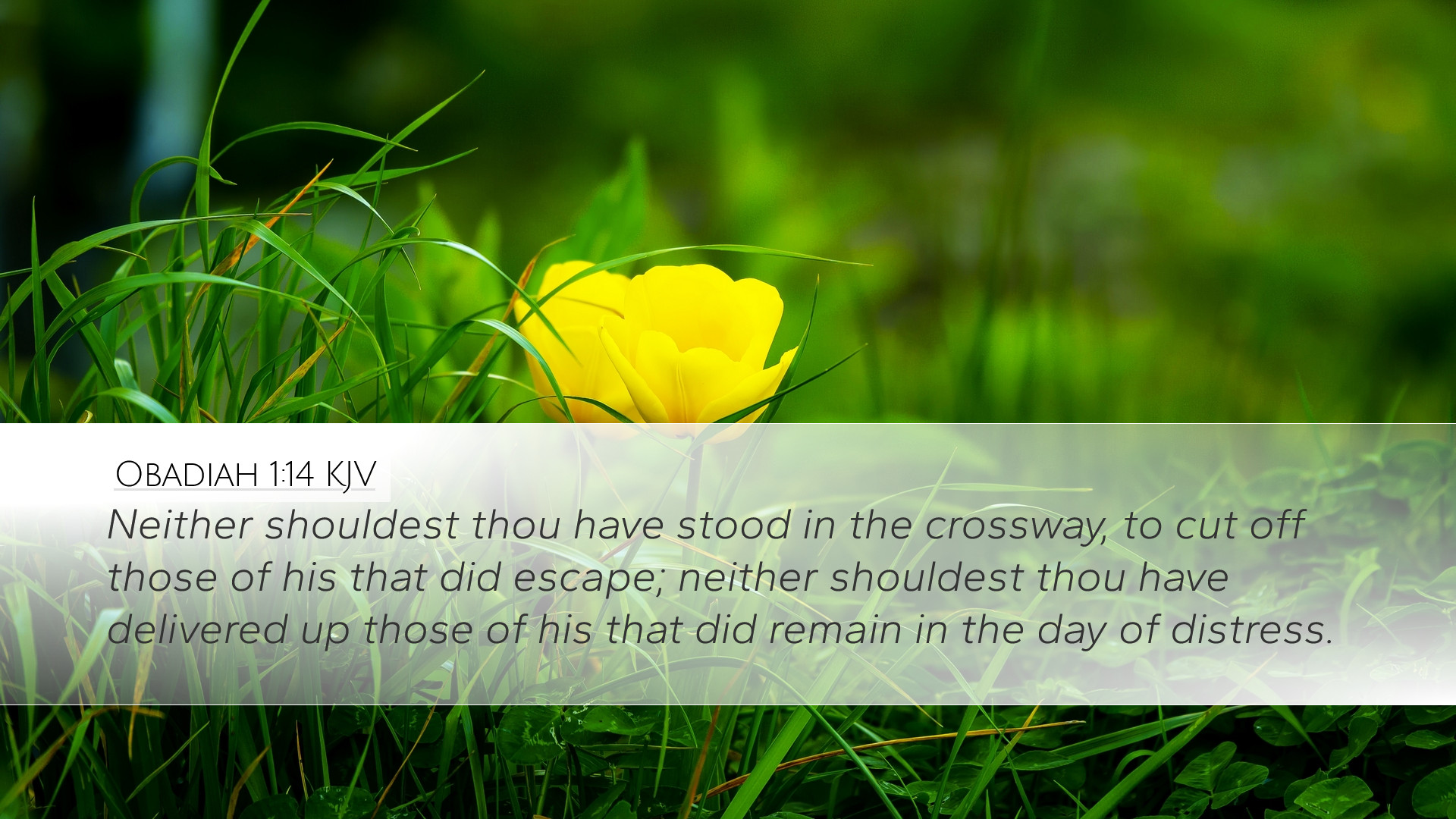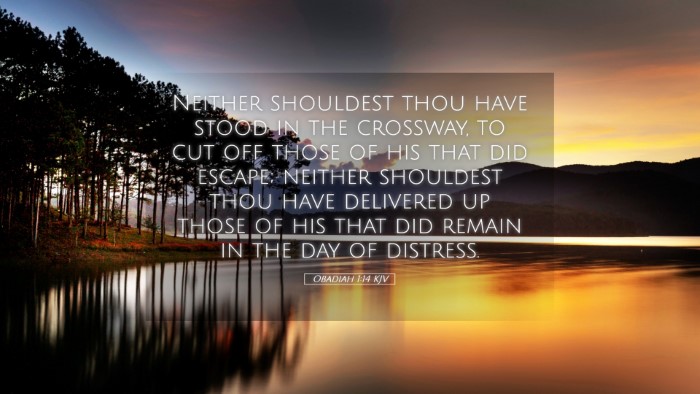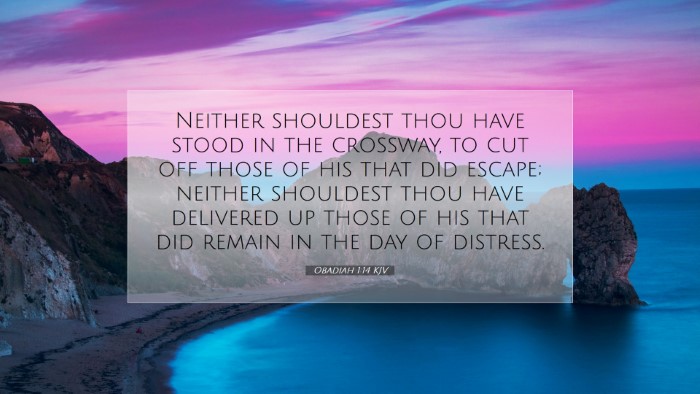Commentary on Obadiah 1:14
Text of Obadiah 1:14: "And stoodest not in the crossway, to cut off those of his that did escape; and delivered up those of his that did remain in the day of distress."
Introduction
Obadiah, a brief yet profound book in the Old Testament, focuses on the judgment of Edom and serves as a reminder of God's sovereignty and justice. This particular verse highlights Edom's betrayal and complicity in the downfall of Israel, reflecting on free will, moral responsibility, and the consequences of inaction in the face of evil.
The combined commentaries of Matthew Henry, Albert Barnes, and Adam Clarke offer critical insights into this verse, enriching our understanding of its implications for both the historical context and the application for contemporary faith.
Historical Context
Matthew Henry: Obadiah prophesies against Edom, a nation that descended from Esau. Their conflict with Israel stems from deep-seated familial and national enmity. The historical backdrop is crucial to grasp; Edom's transgressions during Israel's calamity reveal a betrayal of kinship and brotherhood.
Albert Barnes: The context of this prophecy is the Babylonian invasion of Judah. Edomites failed to assist their brother nation and instead took advantage of their plight. This failure is central to understanding the nature of their judgment, as standing idly by in a time of distress can be seen as an active form of participation in injustice.
Adam Clarke: Clarke elaborates that the Edomites not only did not help but also hindered those who sought refuge. Their behavior represents a profound moral failure, showcasing the danger of apathy when action is required.
Verse Analysis
Interpretation of Key Phrases
- "Stoodest not in the crossway": The imagery here suggests a failure to take a stand where intervention was crucial. It indicates the expectation of moral action that was not met.
- "To cut off those of his that did escape": This phrase reveals the vindictive actions taken against those fleeing the destruction. It implies a direct aggression against God's people, showing no mercy during a time of crisis.
- "Delivered up those of his that did remain": This further emphasizes betrayal. Edom not only neglected to protect their brethren but also handed them over to their enemies, demonstrating treachery and a lack of compassion.
Theological Implications
Matthew Henry: This verse serves as a warning against treating our brothers with disdain during their trials. It urges believers to reflect on their own responses to the suffering of others.
Albert Barnes: Barnes emphasizes the importance of moral duty, especially among nations and individuals who share a common heritage. This call to accountability makes clear that inaction or betrayal during critical times has severe spiritual and eternal consequences.
Adam Clarke: Clarke points out the universal principle at work: a lack of empathy and support toward our neighbors signifies a grave moral and spiritual corruption. This serves as a crucial teaching moment for the faithful in understanding community and kinship in God’s family.
Application for Today
The lesson from Obadiah 1:14 resonates beyond its immediate context, calling believers to action in contemporary settings where injustice and oppression prevail. Pastors and theologians are encouraged to draw on this scripture when teaching about the responsibilities of community and the importance of standing against injustice.
- Call for Solidarity: Believers are invited to actively support those in distress, echoing the values of compassion, mercy, and justice as fundamental to Christian ethics.
- Warning Against Apathy: This passage serves as a strong admonition against the dangers of indifference when witnessing the suffering of others. It urges believers to be active participants in alleviating suffering.
- Moral Responsibility: The verse highlights the moral obligation believers have toward one another, emphasizing that failing to act in love constitutes a betrayal of Christian principles.
Conclusion
Obadiah 1:14 is a poignant reminder of the consequences of failing to act morally and justly. The insights drawn from the public domain commentaries of Matthew Henry, Albert Barnes, and Adam Clarke provide a rich theological framework that challenges readers to reflect on their own lives and communities.
In a world often marred by division and distress, the call is clear: one must not stand idly by in the crossway. Faith requires action, and God’s people are to embody the love and justice He commands, reflecting His heart to a broken world.


